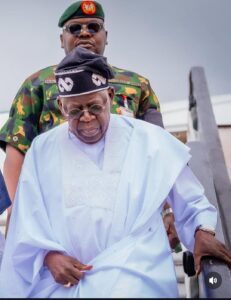COMMUNITY POLICING AS A PANACEA TO SECURITY CHALLENGES IN NIGERIA BY ABUBAKAR MUHAMMAD YAHAYA

A state is not considered a state without a well defined territory, Population and a Government. So crimes in this territory are known to be indegenious and mostly committed by the locals with little or no external influence, which to say every criminal belong to a particular community and crimes committed in such community are as a result of cooperation within such community.
Community Policing has long been regarded as the best solution to curb insecurity in a state such as Nigeria by many experts. Although each community in Nigeria hitherto had its own historical antecedent in terms of tradition, customs, beliefs and religion. Before the advent of Colonialization, each communities amalgamated and known as Nigeria today had its own way of protecting lives and properties of its residents but with the advent of Colonialization and eventually democracy as a system of rule, this traditional way of security had little or no attention at all in the contemporary system.
The Police are the biggest, most visible and most important sub-system of the criminal Justice system. The Police provide the entry point in the criminal Justice system, gather crimes reports from the public or its own discovery. The Police is the main institution which provide regular direct contact with the public.
According to Dambazau (1999), “the Policeman is the gate keeper of the Justice system, he decides who goes into the system and his decision has wider implications for the other components. The Policeman lubricates the system through the arrest of suspects, who are essentially the inputs into the criminal justice system”. The Police are crime fighters concerned with law enforcement (crime fighting) and are order maintainers concerned with keeping the peace and providing social services to the community. We expects our law enforcement Officers to possess the nurturing, caretaking, sympathetic, empathing, gentle characteristics of a Physician, Nurse, Social worker, etc, as he deals with suicide threats, missing person etc. We equally expect him to command respect, demonstrate courage, control hostile impulses and meet great physical hazards. He is also to control guards, prevent riots, apprehend criminals and chase after speeding vehicles. Community crime prevention include neighborhood watch, crime stoppers, citizen patrols, citizen volunteer programs, home security surveys, operation identification, mass media campaigns which all can be done by community while the Police supervise and attend to other problems. No doubt we can’t undermine the complexity roles of a Police but with a smooth and good relationship within the community of his assignment, he is sure to get assistance in areas its needed. Community Policing had been practiced for over a decade and had proven to be tremendously popular among some citizens, academics, Politicians and Police Chiefs. These ideas emphasised community involvement and partnership between Police and the community.
Due to their role, the Police are needed to handle emergencies, maintain order, regulate traffic, and promote a sense of security within the community. The Police can best serve a community when they are regarded as part of the community both by the residents and themselves. The Police and the community need each other to help communities to be as vibrant and safe as possible.
Police community relationships must be two-way partnerships. Although, in a democratic society, the legitimacy of the Police depends on broad and active public acceptance and support. Due to the complexity of the Police role, solving crime related cases has become more difficult when the Police act alone in controlling crimes. According to Lee Brown (1985) said that “the more educated a community is concerning the role of the Police and the challenges the Police face in meeting multiple demands, the more supportive and helpful they can be”. The ability of the Police authorities in reaching out to the community therefore is essential. This is because positive interaction with the community generally results in increased citizen support, higher morale in the work force, protection against or insulation from many hostile external forces and increased resources, and this is not any way undermining the importance of the Police Officer himself as he is the most important individual in maintaining peace and order in a community.
The sad effect is that sometimes the Police are in the dilemma of role conflict. Protecting the rich and powerful and neglecting the weaks because the richs expect the Police to bend the rules in their favour. Also because of political realities, legislatures pass some laws that they do not intend to be strictly enforced all the times. The law makers pass some laws that are vague and ill-defined making it necessary for the Police to interpret these laws and decide when to apply them.
No doubt the Nigerian force is mindful of the importance of training to its mandate and corporate objectives. This training should also takes cognisance of the effect of training in relation to the effectiveness of its services to the society. The force should therefore pursue more training programmes in specialised areas in order to improve on its services to the society and effectively mitigate the high crime rate in the society. Also facilities in the training institutions must be improved upon tremendously since subventions from the government are not enough to effectively cater for the training needs of the force, efforts should be intensified at securing further assistance from donor countries and organizations in areas of training. More local courses, seminars and workshops are also urgently needed. In areas where community Policing have been effectively implemented, crime rates have gone down, quality of life has been improved and people have felt safer.
It is pertinent at this point to mention that no matter the level of complexity of crimes in Nigeria today, this nation is enormously gifted and endowed and should tap into these so as to curb the menace in our society. It is of essence that the wherewithal to do this should be placed higher in the priority list of the government and needful should be done. Sooner or later, Nigerian citizens would resort to take up arms to protect themselves from crimes, and since its the obligation of the Police to protect the citizens from crime, since they cannot solve crime and disorder by themselves, and they cannot let the citizens take the law into their hands. To address these problems, the Police must turn to the public for its support and active participation in programmes to make the streets safer and improve the quality of life. When the Police establish and maintain mutual trust between members of a community, the community will then cooperate and come forward with crime fighting information.
Under this approach, Police must form cordial partnership with the people of the community allowing average citizens the opportunity to have input into the Police process in exchange for their support and participation.
Over the years, Nigerians have developed a separatist approach ‘them and us’ mentality towards the Police and this inevitable outcome further dent the image of the Police, confidence declines and cooperation is non-existence. The Police and the community relations will further improve on the image of the Police and promote trust between the two groups. For the success of this relationship, the Police must be transparent, fair, apolitical, accountable and responsive to public perceptions and expectations which would connotes “Police service” rather than “Police force”, where the most significant benchmarks of the performance are public satisfaction, trust and confidence.







